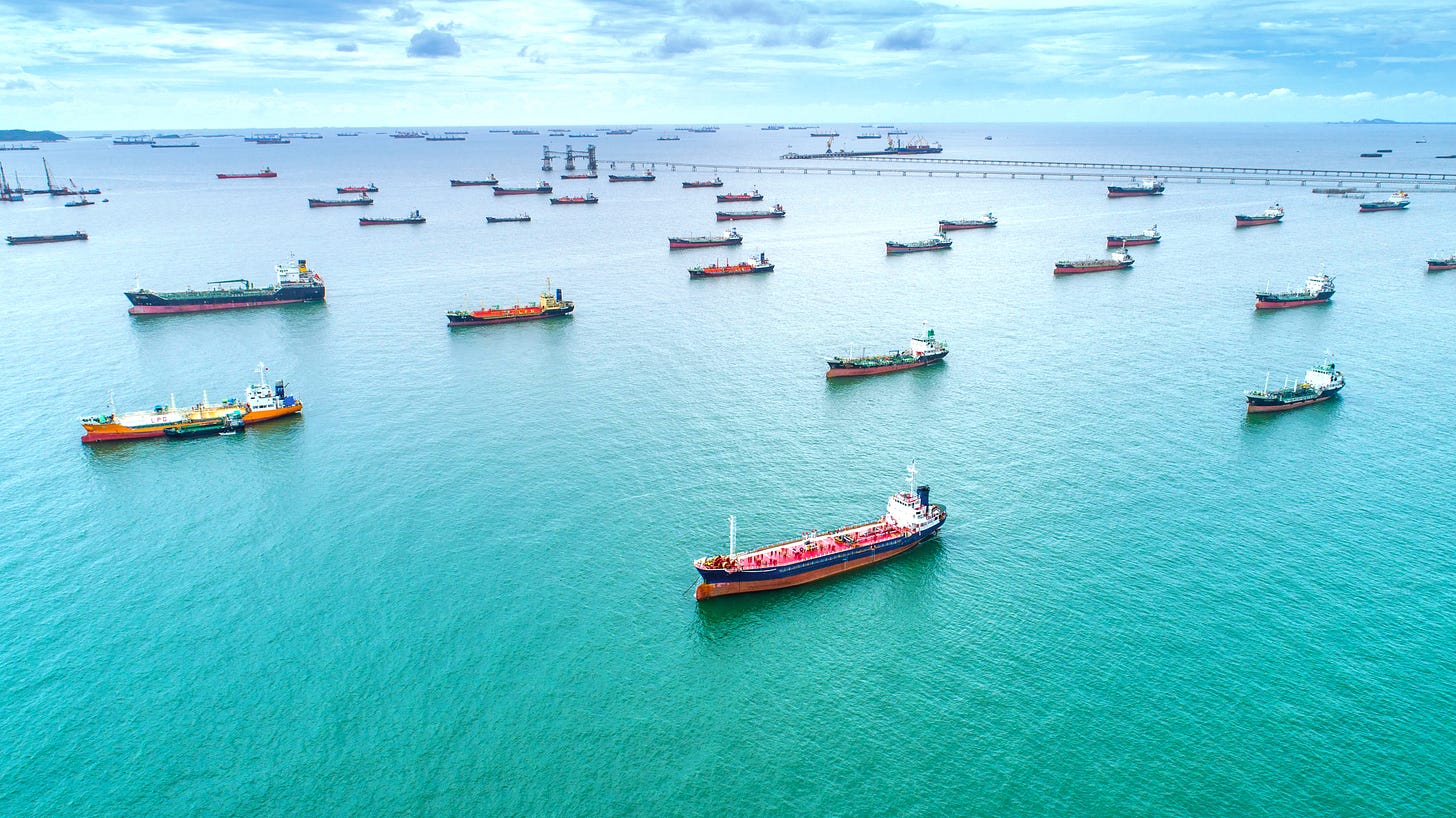Emerging Markets Daily - June 11
Top EM Fund Goes Long on Growth Story, EM Hedge Funds and the US Bond Rally, China's Yuan and Reserve Currencies, Oil Rally Not Over, Iran Nuclear Talks
The Top 5 Emerging Markets Stories from Global Media - June 11
‘Failure of Imagination’ Holds Back EM Investors, Top Fund Says
Barron’s
“Baillie Gifford isn’t a household name among U.S. investors, but the firm is a powerhouse in international investing. As a subadvisor behind the $71 billion Vanguard International Growth (VWILX), it played no small role in that fund’s 60% return in 2020…”
“The overarching goal of the emerging markets fund is to find growth companies that have the potential to double in value within five years. ‘We are trying to exploit three inefficiencies: short-termism, failure of imagination, and volatility aversion,’ says [Mike] Gush, 39, who joined the firm in 2003 and became a partner in 2020.”
“When it comes to emerging markets, investors can be especially guilty of a failure of imagination. Every country has its challenges, and especially now, during the Covid-19 pandemic. Many markets, however, have seen similar trends in the adoption of e-commerce and digital technology.”
“Perhaps most important, leading companies aren’t copycats of their developed-market counterparts, says Gush. ‘You hear executives at Western businesses now saying, quite openly, that Chinese businesses are ahead of the game…’”
“MercadoLibre (MELI) is a staple of many emerging market funds, but the Baillie Gifford team says investors still aren’t seeing the bigger story with the Latin American e-commerce and payments company. Despite increased digital penetration during the pandemic, its key markets are still in the very early stages of digital adoption. Gush notes that in Brazil, MercadoLibre’s largest market, e-commerce penetration is just 5%. ‘Thinking outside of the box, why wouldn’t it be able to go to 15%, 20%, or 25% over time?’ he asks.” Sarah Max reports.
Note from EW editor: Stocks mentioned in the article that the emerging markets fund likes: Taiwan Semiconductor, Burning Rock Biotech, Yatsen Holding Ltd, Mercado Libre.
EM Hedge Funds Get Relief From US Bond Rally
Financial Times
“Falling US bond yields and a weakening dollar are helping drive a recovery in emerging market-focused hedge funds, after some managers including $12bn-in-assets Pharo Management struggled following a tough start to the year.”
“Emerging market funds gained 1.9 per cent last month, according to data group Eurekahedge, ahead of a 1.1 per cent gain among hedge funds more broadly. That leaves them up 5.4 per cent this year, still behind average hedge fund gains of nearly 8 per cent.”
“Emerging market managers have been benefiting from a recent decline in US Treasury yields, which soared earlier this year as the easing of coronavirus lockdown restrictions raised investor expectations of a strong US economic recovery and rising inflation…”
“The weakening of the dollar over the past two months has also helped to push down the costs of servicing debt in emerging markets, as a lot their debt is denominated in the greenback.”
“London-based Pharo, which is headed by former Merrill Lynch banker Guillaume Fonkenell and which is one of the world’s biggest emerging markets hedge funds, was hit hard in the first quarter. Its $5.6bn Gaia and $5.3bn Macro funds, which had both made money in each of the past five years, were down nearly 9 per cent and 7 per cent respectively at the end of March, according to numbers sent to investors, while its Trading fund was down around 11.5 per cent.”
“However, it has pared some of its losses over the past two months, benefiting from the more favourable conditions for emerging markets…Other funds that have gained recently include London-based Carrhae Capital, which was up 2.7 per cent in its hedge fund and 4.5 per cent in its long fund last month, according to numbers sent to investors…Ali Akay, Carrhae’s chief investment officer and a former partner at hedge fund SAC, said that rising US bond yields had driven emerging market investors from growth stocks into value stocks, which had benefited some of its positions.” Laurence Fletcher reports.
How China’s ‘Dual Circulation’ Plan Aims to Elevate the Yuan As Major Global Currency
South China Morning Post
“Amid rising anti-globalisation sentiment and as Western countries intensify their efforts to contain China, the country is entering a period of economic development that will create new infrastructure to enable the global use of the yuan, according to a former deputy governor of its central bank.”
“As China’s economy integrates with the rest of the world, market entities will use the yuan for cross-border purposes, although under the so-called dual circulation plan, yuan globalisation is ultimately aimed at serving China’s real economy, trade and investment, said Export-Import Bank of China chairman Hu Xiaolian.
“‘Now that China is developing a new paradigm characterised by its dual circulation model, the globalisation of the yuan has an even more solid foundation, Hu said. ‘At the end of the day, it is about serving China’s dual circulation model while promoting closer cooperation with the rest of the world.’”
“China’s dual circulation plan places a greater focus on the domestic market, or internal circulation, and is China’s strategic approach to adapting to an increasingly unstable and hostile outside world. It is expected to see China place less reliance on its export-oriented development strategy, or external circulation, without abandoning it altogether.”
“For the time being, yuan internationalization is still at its early stage and oriented toward meeting the import payment needs of China’s domestic market. The transition into a new stage of yuan globalisation will be dependent upon a deeper and broader opening up of China’s financial markets, the realisation of a convertible capital market, as well as closer ties between China and the rest of the world, Hu added.” Karen Yeung reports.
Editor’s Note: For more on China’s dual circulation plan, see this Explainer in SCMP.
Editor’s Note: The IMF recently issued a major report that shows that the yuan is still far from achieving international currency status, but notably the report said that the U.S dollar’s share of global foreign exchange reserves fell to its lowest level in 25 years in the forth quarter of 2020. Relevant charts below from IMF Blog article written by Serkan Arslanalp and Chima Simpson-Bell.
Oil Rally Not Over, Brent Could Hit $80, Goldman Says
Arab News/Reuters
“US investment bank Goldman Sachs expects Brent crude prices to reach $80 per barrel this summer, betting that a recent oil market rally will continue as vaccination rollouts boost global economic activity and demand for the commodity.”
“Brent prices hit $72.93 per barrel this week, their highest level in over two years, fueled by expectations of stronger demand. Brent futures were trading at $72.21 a barrel on Friday, while US West Texas Intermediate (WTI) crude was around $70 a barrel.”
“‘Rising vaccination rates are leading to higher mobility in the US and Europe, with global demand estimated up 1.5 million barrels per day (bpd) in the last month to 96.5 million bpd,’ the bank said in a note released late on Thursday.”
“Goldman, which has longstanding commodity sector expertise, expects recovery in oil demand to continue and sees global demand reaching 99 million bpd in August.”
“The investment bank also said slow progress in negotiations on an Iran nuclear deal could also weigh on oil supply, supporting prices.” Reuters/Arab News report.
Geopolitics: Iran Nuclear Talks Resume in Last-Ditch Effort Ahead of Elections
Bloomberg
“World powers and Iran will try reviving their landmark nuclear accord one last time before voters in the Islamic Republic head to the polls next week to elect a new president who’s likely to be less willing to make concessions to the West.”
“Diplomats have been filtering in to Vienna for a sixth and possibly final round of negotiations starting Saturday. At stake is the 2015 agreement that capped Iran’s nuclear activities in exchange for the lifting of sanctions. Then-President Donald Trump jettisoned the accord three years ago and unilaterally reimposed punishing penalties, prompting Iran to dramatically increase its production of nuclear fuel.”
“The negotiations are being closely watched by oil markets as a deal would remove U.S. sanctions on Iranian exports…Plenary talks between China, France, Germany, Iran, Russia and the U.K. are expected to convene on Saturday. Enrique Mora, the European Union’s deputy foreign policy chief who’s coordinating sessions, is charged with shuttling messages and instructions between delegates and Washington envoy Robert Malley as long as the U.S. formally remains outside of the accord.”
“European diplomats have been warning for weeks that resurrecting the deal could become more complicated if an agreement isn’t struck before Iran’s presidential election on June 18. Asked if one week is enough time to reach a deal, assuming there’s a will on both sides to do so, State Department spokesman Ned Price told reporters Thursday that ‘big issues’ continue to divide the sides.” Jonathan Tirone reports.





